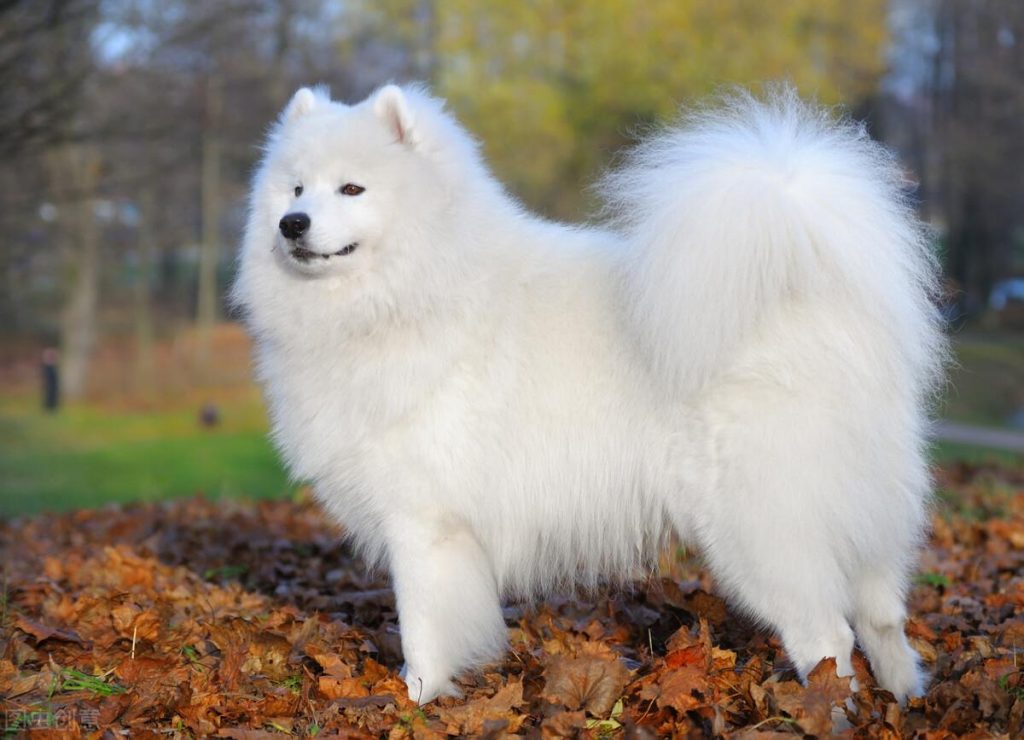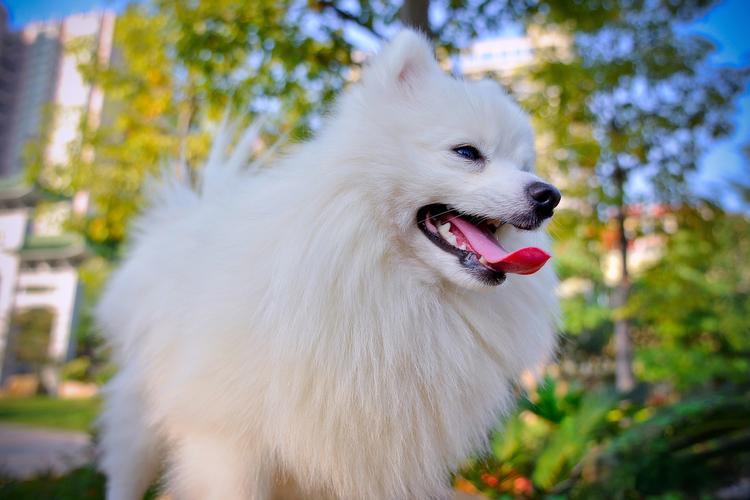
- Tilt your head Most people have seen dogs tilt their heads to one side, as if asking something. This usually happens when dogs hear new sounds or see something they don’t quite understand. Head tilt is especially common in puppies. This behavior can have several different meanings. Dogs may turn their heads to one side in order to hear or see something better. Consider that a dog’s mouth can obstruct vision. Maybe the ear flaps will mask some of the sound. Temporarily tilting your head may be a way to see or hear better. There is also some evidence that this is a sign of focus and reasoning. If the dog’s head remains in a tilted position and the dog can’t seem to control it, this could be a sign of a health problem, such as an ear infection or even a brain problem. If your dog has a suspicious head tilt, see a veterinarian as soon as possible.
- Eating poop is one of the most disgusting things a dog can do. Eating poop, also known as coprophagy, is a common habit in dogs. We may never fully understand why so many dogs eat poop. Theories abound, including that eating poop is an instinct, a sign of disease or malnutrition, the effects of anxiety and stress, or a form of pica (compulsion to eat non-food). Coprophagia in dogs may be learned at an early age, or even caused by aging. While this habit is generally not very dangerous for dogs, it is very disgusting and can lead to certain diseases. If your dog is eating feces to rule out an underlying medical problem, be sure to have your veterinarian examine your dog. If no medical problems are identified, in some cases, specific training may help you break the habit.
- Chase their tails Does your dog go around in circles chasing his tails? This is common behavior in dogs. In some cases, rear chasing is a natural and fun activity. However, excessive tailgating can be a sign of a health or behavioral problem. If your dog is chewing his tail when he grabs it, there may be a problem with his skin or anal glands. If the tailgating is persistent and intense, it may be a sign of OCD. Yes, OCD can affect dogs, although it’s not particularly common. Consult your veterinarian if you are concerned about your dog chasing its tail or your dog causing its tail to injure itself.
- Barking, howling, or growling vocalizations, especially barking, are normal behavior in dogs. Some dogs vocalize more than others for different reasons. Dogs may bark to communicate with humans and express themselves. They may even bark, bark, or howl to communicate with other dogs. It is common for dogs to bark when they sense danger. Howling often occurs when dogs hear other dogs howling or even similar sounds like sirens. Generally speaking, this is a natural, instinctive behavior of dogs. Sometimes, the breed of the dog determines the type of vocalization (many retrievers hiss or howl, small dogs tend to bark; Basenji don’t usually bark, etc.) Excessive vocalization can be a sign of distress or boredom. Don’t ignore this type of barking. It can lead to barking as a behavioral problem. However, you also don’t want to intensify your vocalizations when you are over vocalizing them. Training can help with vocalization issues, although you may need the help of a dog trainer when vocalization is a major problem.
- Glide with the butt It’s a fun thing to do when a dog glides on its butt. If you’re not sure, you’ve seen this already, or want to have a laugh, check out this funny dog gliding video. Did your dog do this? Don’t worry; your dog isn’t weird (maybe he is, but it’s not because of the skateboard). Dogs kick ass on the ground because something is bothering them there. That “thing” is usually an anal gland. These sacs are located on either side of the anus and are filled with greasy, smelly fluid. In most dogs, the anal glands empty naturally during a bowel movement. Other dogs need a little help from a human to express their anal glands occasionally, so if you notice frequent sliding, you should get an evaluation by your veterinarian. Other reasons for slippage include skin problems, anal lumps, or maybe your dog has something stuck behind (well, usually that’s poo) and just wants to remove it.
- It is very common for dogs to lick people. Why do they do this? As you might have guessed, licking is often a way that dogs show affection to us. This explains why we often refer to them as “dog kisses.” Dogs also lick us because they seek our attention. Plus, they thought we tasted good. There are also instinctive reasons for licking. Wolves and wild dogs sometimes feed their young by regurgitating food. If your dog bothers you when he licks you, training is the best way to stop it. Often, ignoring licks and rewards when your dog stops licking will train your dog not to want to lick. If you don’t mind licking, that’s probably fine. While a dog’s mouth is no cleaner than ours (it’s a myth), germs are generally not harmful unless it gets into an open wound.
- Humpback behavior is natural in dogs. Contrary to what you might think, humping isn’t always about sex. It also has nothing to do with dominance as some people used to think. As part of normal play, dogs often hunched over each other. They may also playfully hump objects and people. Excitement (non-sexual) and attention seeking can also be the cause of the hump. A hump between changing dogs is usually not a problem unless it bothers one of the dogs. If you feel a problem when two dogs are playing, separate them immediately. For intact or unaltered dogs, this can quickly lead to mating and pregnancy, so intact dogs should not be put together unless this is the intended outcome. The hump of an object is only a problem if it bothers you or is overused, as this can cause injury to the dog’s genital and/or groin area. When it comes to socializing with people, you might break this habit for the sake of your tenants. Often, the solution is to stay away from the dog and refuse attention until the hump stops, or redirect them to better options, such as playing with a favorite toy.
- Sniff the other dog’s butt The two dogs met, and suddenly they sniffed each other at the back end. Why do they do this? Dogs have a sense of smell at least 10,000 times better than humans due to their highly complex and superior olfactory system. Dogs understand the world through their noses. Dogs sniffing each other is their normal way of getting to know each other. Many of the most concentrated scents are in the anal and genital areas. A dog can learn about gender, reproductive status, temperament, diet, and more by sniffing another dog’s buttocks. Every creature (dog, human, etc.) has its own unique scent. This may be why some dogs sniff humans in embarrassing ways. If your dog is too personal with people, redirect him to something else, like treats or toys. There’s no reason two dogs shouldn’t sniff each other unless one dog seems bothered by it. Two dogs may get along better if you allow each dog to sniff the other adequately.
- Digging Many homeowners get frustrated when their dog has been digging in the yard. Dogs usually burrow out of boredom or anxiety. Some dogs burrow to hide their toys from other dogs (or perceive a threat to their property). Dogs may also burrow (find a cool spot in the ground to lie down) on hot days. If this is the case, your dog may be too hot to be outdoors. The best way to prevent digging is not to leave your dog outside alone. Try to interact more with your dog by offering exercise or playing games.
- Leaning on people Many dogs like to lean on their owner’s legs, feet, or body. This seems to be especially common among giant breeds. The general reason for this is simple: your dog wants to be closer to you. Dogs are affectionate animals. Don’t let anyone tell you that your dog is trying to dominate you in some way because that’s not true. Less commonly, leaning can be a sign of fear or insecurity. Leaning can also be associated with separation anxiety, in which your dog shows other signs of anxiety when you leave him alone.
- Panting is a completely normal canine behavior. But what’s the reason for panting? Dogs pant mainly to calm themselves down. Because they don’t sweat like humans do, dogs must rely on air exchange in their mouths to cool their bodies. Since this is a very inefficient process, we humans should do our best to keep our dogs cool and prevent heatstroke and heatstroke.























































